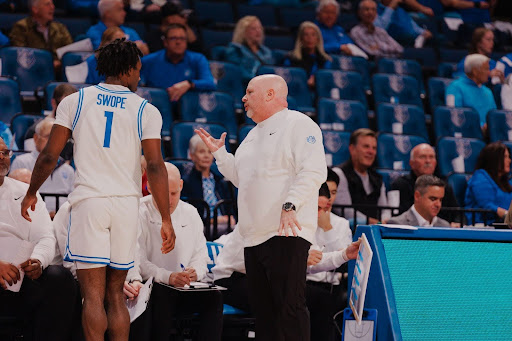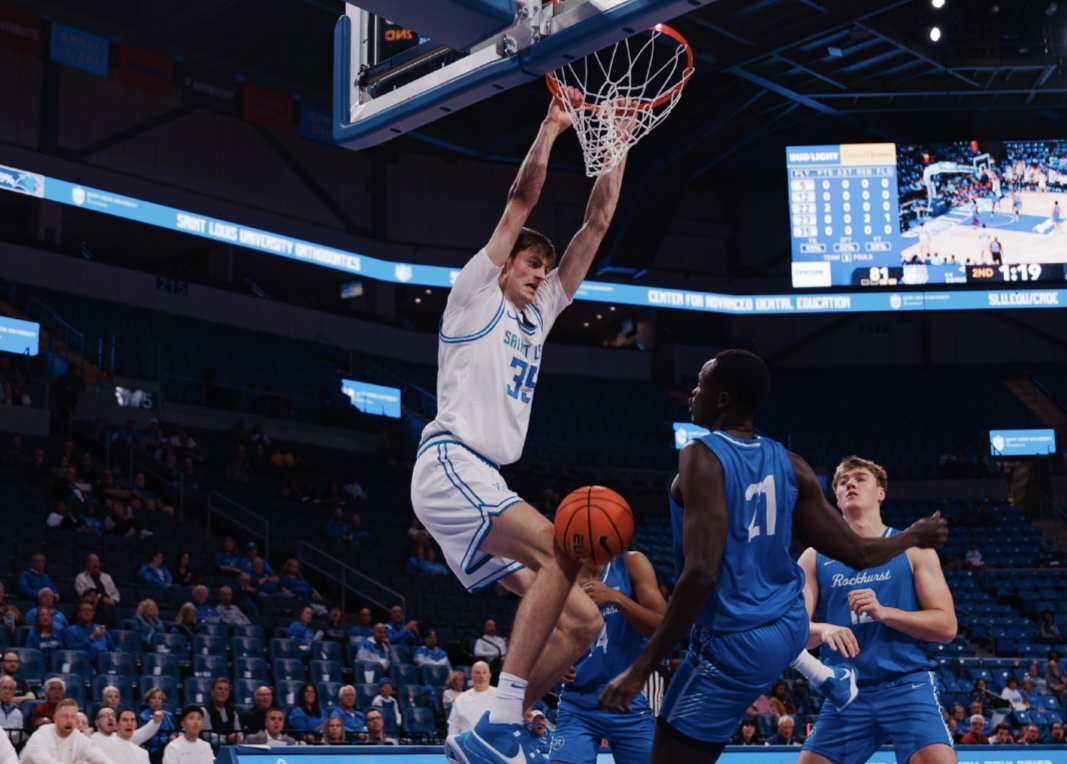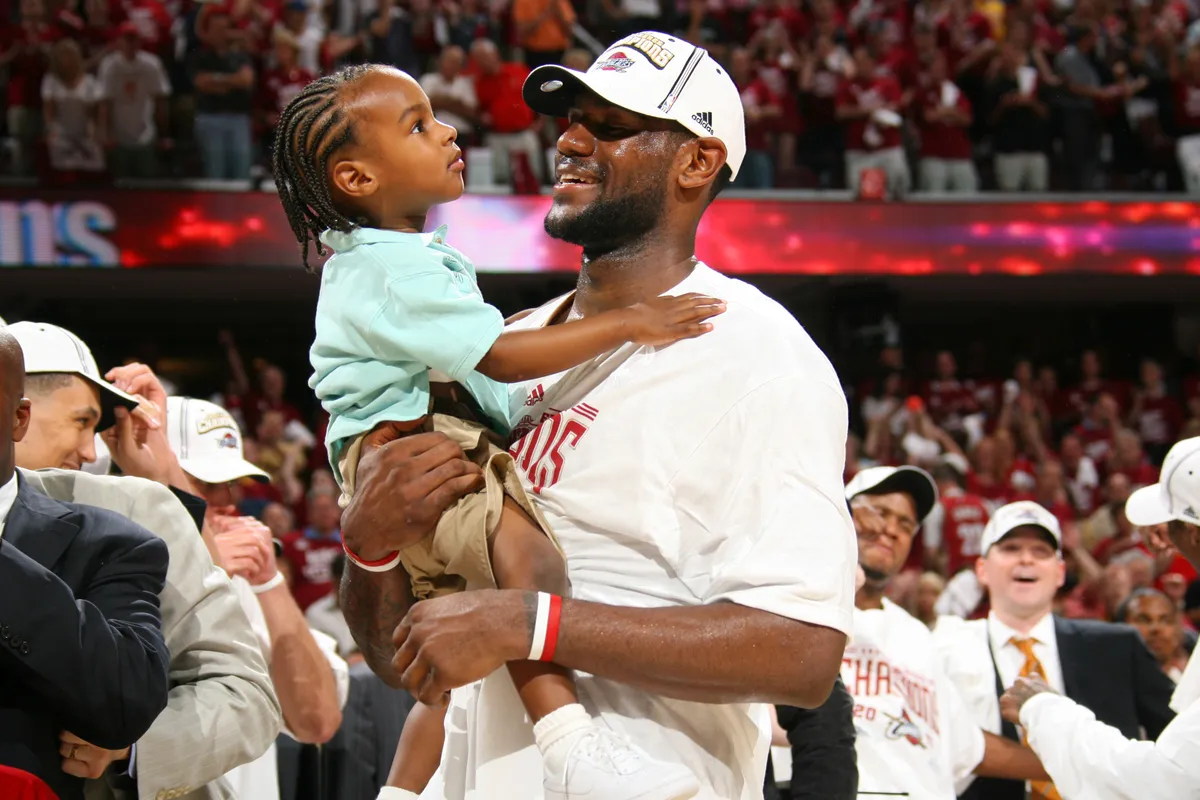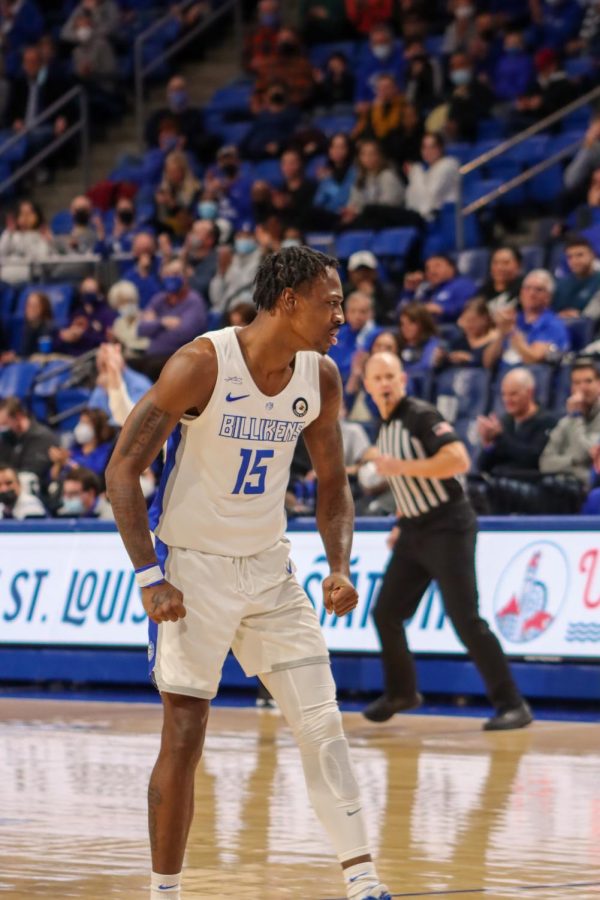It is an unusual occasion when the head coach of a Division 1 basketball team becomes a media pitchman. Yet there was Rick Majerus, coach of the Saint Louis University men’s basketball team, emphatically selling the story of his only upperclassman. For nearly five minutes following his team’s 62-51 thumping of Duquesne on Feb. 26, Majerus raved about Paul Eckerle.
“I don’t like Paul. I love Paul,” he said. “To me, Paul is the epitome of a student-athlete. He could be Academic All-American … He plays on heart. He’s inspirational. I told the team we want to give a Paul Eckerle effort.”
The Paul Eckerle story has a unique beginning. A graduate from St. Francis Borgia in Washington, Mo., he was a valedictorian, a two-time All-State selection and Class 3 state champion. Eckerle came to SLU as a biology/pre-medical major, while Brad Soderberg was still head coach of the men’s basketball team. Soderberg did not offer Eckerle a scholarship; instead he asked Eckerle if he would consider walking on the team as a practice player. It seemed Eckerle’s dream of playing collegiate ball was a bust.
He was wrong.
On April 17, 2007, the University fired Soderberg after what it saw as a disappointing five-year tenure. Majerus was hired two weeks later. After talking to people around the St. Louis prep-basketball community, he decided to offer Eckerle a place on his team.
The dream was alive once more.
Admittingly, Eckerle did not expect much. And who would? With a head coach that did not recruit him and returning, and proven, players like Kevin Lisch, Tommie Liddell III, Barry Eberhardt and Luke Meyer, there were not many minutes to be had on the floor. But instead of sulking as some freshmen do, Eckerle embraced his new role.
“I bought into coach’s style of play and was able to execute what he had in mind,” he said. “I definitely was not the athletic of the other two freshmen. They were much more athletic. But I played much more than I expected, honestly.”
Eckerle would play in all 31 games and make one start, collecting 119 points and averaging just over 18 minutes per game. Though the transition was “different,” the 6-foot-1 guard quickly found out that tough defense and smart shooting was his ticket to the floor. He says he was surprised at the level of commitment necessary to succeed in D-1 basketball.
“It was a learning experience for me, my first year,” Eckerle said. “Obviously it was much different than high school, the way practices are conducted to the level of involvement that the program demands. The hours, the summers, it wasn’t something I was afraid of, but something different.”
It was after this successful first year that the setbacks began. It was after the first year that Eckerle would show the heart he has become admired for.
The summer between his freshman and sophomore years, Eckerle injured his back, limiting his pre-season involvement with the team. It is an injury that he still suffers from today. Though cleared to play for the season, with the addition of Kwamain Mitchell and Kyle Cassity, Eckerle again saw his opportunity to shine evaporate.
“There was a lot of turnover that year,” he said. “I’m very well aware that [there were better players]. We all have our own abilities. I think that’s something that has helped me. I give what I can, and I think that’s why I’ve done as well as I have.”
He did manage to bucket 47 points over 30 games, making 10 of 34 three-point attempts and snagging 13 defensive rebounds.
Fate was not done with Paul Eckerle, however.
During a summer pick-up game in 2009, Eckerle blew out both his ACL and MCL. His junior year was over before it even began. For the first time in six years, Eckerle was relegated to the bench. He had to watch as his team surged to a fourth place finish in the Atlantic 10 Conference and reached the championship of the CBI Tournament. But Eckerle, always the optimist, once again embraced the hardship.
“Being almost an assistant coach, that was my role,” he said. “I knew the other team’s plays and how they executed those plays and called them out. My input during the games was minimal, but I had my moments. I went to practice every day, which is where I contributed most and went on the road trips.”
Eckerle received a medical hardship waiver from the NCAA and kept his year of eligibility. But the knee injury and its significance on his career was not lost on him.
“The best way I can describe it is it gave me perspective. I felt a strong sense of camaraderie with the guys even though I couldn’t share the field of battle with them. I think I learned a lot about the game that year. I learned about other positions. But it was tough not being on the court.”
Now, with what is essentially his senior year at SLU (he will opt to leave with one year of eligibility left to attend medical school), Eckerle finally has time to reflect on what has been a unique experience.
“I had a lot of fun along the way. I got to do things I never imagined myself doing: Scoring a bucket in Cameron Indoor (Duke was his favorite team growing up), playing against NBA players, incredible athletes, lots of stories to look back on and will enjoy telling forever. It’s been great.”
Eckerle said he has been admitted to SLU’s medical school but is waiting to hear from Washington University in St. Louis before making a final decision, a process he describes as “tormenting.”
It is an unusual occurrence when a D-1 athlete both plays a demanding sport and decides to leave for medical school. Yet here is Paul Eckerle, and this is his story. He would rather you talk about someone else, but his story is a reminder that life is what you make of it.
“My SLU experience, in many ways, prepared me to be a successful person in society. I didn’t know what to expect from it. There may be some things you have to sacrifice, but … it’s been so worth it.”
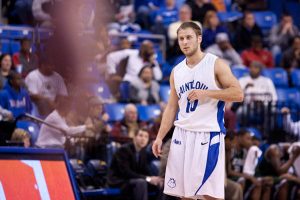
Categories:
Eckerle wraps up Billiken basketball career
[email protected]
•
March 3, 2011
0
Donate to The University News
$2185
$5000
Contributed
Our Goal
Your donation will support the student journalists of Saint Louis University.
More to Discover





